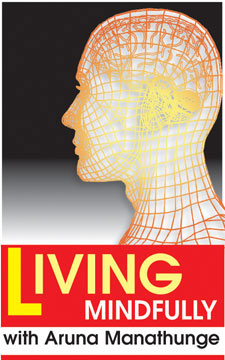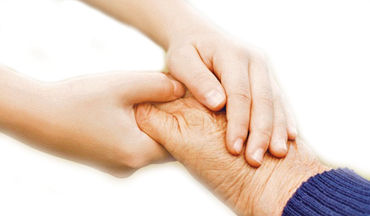|
Benefits
of Mindfulness in Education - Part 7:
Developing Kindness
 One of the latest developments in modern Mindfulness Movement is the
incorporation of developing kindness among the practitioners, especially
children and adolescents. The Center for Healthy Minds, of the
University of Wisconsin-Madison is a pioneer in this development. One of the latest developments in modern Mindfulness Movement is the
incorporation of developing kindness among the practitioners, especially
children and adolescents. The Center for Healthy Minds, of the
University of Wisconsin-Madison is a pioneer in this development.
Their objective is to develop a kinder, wiser and a more
compassionate world through a combination of Mindful and Kindness
practices. They have found through scientific research, such an approach
would not only improve the personal well-being of the practitioners but
also cascade into the well-being of others in their communities.
 This objective is certainly not alien to our Sri Lankan culture,
steeped in the values of sharing and caring. However, the current pace
of highly competitive living sometimes compared to a 'Rat Race' is
placing a lot of strain on such values. Thus it is quite encouraging to
note this combined teaching of Mindfulness and Kindness practices
emerging from the USA - a country that has fully experienced the
negative effects of the 'Rat Race'. This objective is certainly not alien to our Sri Lankan culture,
steeped in the values of sharing and caring. However, the current pace
of highly competitive living sometimes compared to a 'Rat Race' is
placing a lot of strain on such values. Thus it is quite encouraging to
note this combined teaching of Mindfulness and Kindness practices
emerging from the USA - a country that has fully experienced the
negative effects of the 'Rat Race'.
A Healthy Mind
Research by The Center for Healthy Mind was rooted in neuroscience
and revolved around one basic question: What constitute a Healthy Mind?
In order to answer that, the Center for Healthy Minds have been
investigating the science of emotions, contemplative practices and
qualities of mind affecting well-being such as attention, resilience,
equanimity, kindness, compassion, gratitude and empathy.
The
Center is part of one of the world's top research institutions and a
global hub for innovations in affective and contemplative neuroscience
in addition to studying well-being across the lifespan.
It recently initiated a 12-week curriculum study involving
pre-kindergarten students of six schools of the USA. Those
pre-kindergarten kids were introduced to stories and practices for
paying attention, regulating emotions and cultivating kindness. The
initial results of the research suggest that such a program can improve
grades, cognitive abilities and relationship skills of children.
Development of Human Values
Such programs introduced early in life helps to develop empathy (the
ability to take perspective of and feel the emotions of another person)
and compassion (the feeling that arises when one is confronted with
another's suffering and feel motivated to relieve that suffering). This
in turn leads to the development of human qualities early in life.
They learn to understand the suffering of other kids and even adults
through the practice of Kindness. Kindness bridges the gaps and build a
sense of connection among students, teachers and even parents.
Learning to strengthen their attention through Mindfulness exercises
and regulate their emotions through Kindness practices are foundational
skills that will benefit kids in school and throughout their lives.
Having classrooms full of Mindful and Kind students completely
changes the school environment. It will be truly powerful to have an
entire district of schools practicing Mindfulness and Kindness. Such a
combined teaching may be a way to initiate a widespread societal
transformation that doesn't require large budgets, huge policy changes
or extensive administrative involvement.
Creative Activities
The 12-week kindness curriculum combines some creative activities for
four-year-old kids. One is the 'Kindness Garden' - a large poster of a
garden on the wall of the class room. When the kids perform an act of
kindness or benefit from one, they add a sticker to the poster. The idea
is that friendship is like a seed - it needs to be nurtured and taken
care of in order to grow. Through the exercise, students get a practical
and hands-on experience about how kindness feels good and how they can
grow more friendships and in turn feel better in and outside the class
room.
 Another
activity is 'Peace Wands'. The students get into pairs of two, and one
holds a wand with a heart and the other a wand with a star. The child
with the heart wand speaks 'from the heart' and the other child listens
as a "'star listener' and repeats what she thinks was said. Whenever
there is a conflict between the students, they use the wands to support
the process of paying attention, expressing their feelings and building
empathy. Another
activity is 'Peace Wands'. The students get into pairs of two, and one
holds a wand with a heart and the other a wand with a star. The child
with the heart wand speaks 'from the heart' and the other child listens
as a "'star listener' and repeats what she thinks was said. Whenever
there is a conflict between the students, they use the wands to support
the process of paying attention, expressing their feelings and building
empathy.
The Kindness Curriculum combines creative activities such as the
above with books, songs and movement to communicate the concepts of
Mindfulness and Kindness in a way that is understandable to
four-year-old kids.
Nurturing Mindful Kindness
Such foundational learning needs to be nurtured in children from
early childhood into adolescent years. The practice of developing
Kindness was introduced to adolescent school children in Sri Lanka in a
60-Day program at end of the six-week Mindfulness practice sessions.
They learned the practice based on the strong foundation of the
Mindfulness practice. We will investigate this subject further next
week.
(Aruna Manathunge can be contacted on
[email protected]) |

